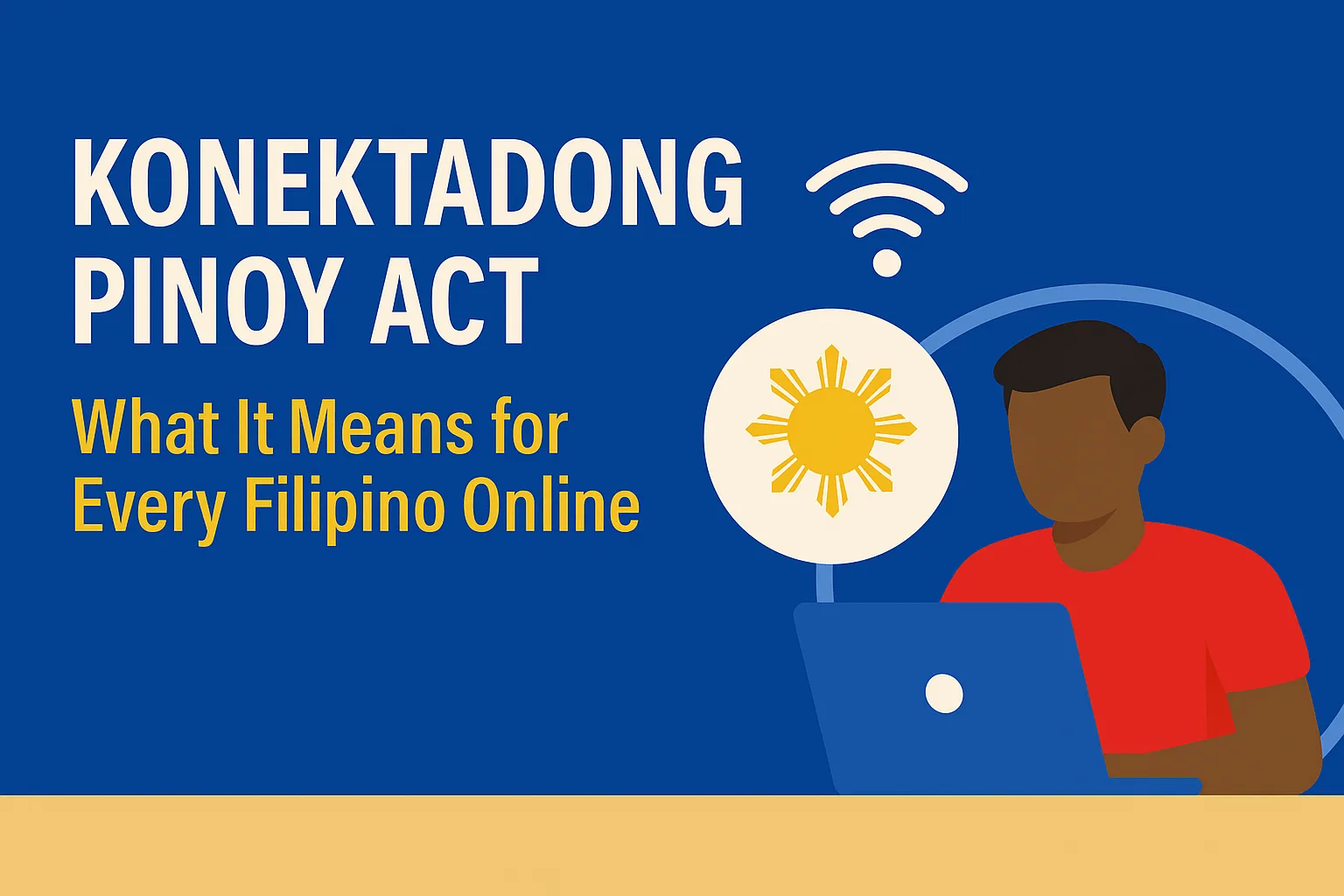The Konektadong Pinoy Act, officially known as the Open Access in Data Transmission Act, has now lapsed into law. This landmark legislation could reshape how Filipinos connect to the internet — from major cities to the most remote barangays.
Why the Konektadong Pinoy Act Matters
For years, the Philippines has struggled with slow, expensive, and uneven internet access. Only about half of all barangays are connected, leaving millions of Filipinos at a disadvantage in education, work, and daily life.
The law changes the game by:
- Removing outdated barriers to entry
- Opening the market to smaller players
- Simplifying licensing via DICT
- Promoting infrastructure sharing
- Mandating cybersecurity standards
How the Konektadong Pinoy Act Impacts Filipinos
More Affordable Internet
Increased competition means providers will be forced to lower prices and improve service quality.
Better Access for Remote Areas
Smaller ISPs and satellite providers can now reach barangays, islands, and remote towns long ignored by major telcos.
Boost for the Digital Economy
A stronger digital backbone fuels e-commerce, fintech, freelancing, and startups, leveling the playing field for SMEs.
Education and Public Services
Reliable broadband enables remote learning, telemedicine, and e-government services to expand nationwide.
Challenges Ahead
Cybersecurity Enforcement
DICT must ensure new players meet global security standards. Weak enforcement risks exposing users.
Fair Competition
Smaller ISPs need safeguards to avoid being absorbed by larger telcos.
National Security Concerns
Proper vetting is needed for foreign-controlled providers to ensure resilience in critical infrastructure.
What’s Next for the Philippines
The Department of Information and Communications Technology (DICT) will release the Implementing Rules and Regulations (IRR) within 90 days. These rules will determine how quickly the benefits of the Konektadong Pinoy Act reach Filipino consumers.
Final Take
The Konektadong Pinoy Act is a big step toward digital inclusion and affordable internet access for all Filipinos. But its true impact depends on strong implementation, balanced regulation, and a commitment to closing the digital divide.
Frequently Asked Questions About the Konektadong Pinoy Act
What is the Konektadong Pinoy Act?
It is the Open Access in Data Transmission Act, a new law that removes the congressional franchise requirement for internet providers. This opens the market to more players and promotes affordable, accessible internet.
Why is the Konektadong Pinoy Act important?
The law addresses long-standing issues of slow, expensive, and unequal internet access in the Philippines. It encourages competition, lowers costs, and expands coverage to underserved areas.
Who will benefit from this law?
Every Filipino stands to benefit, especially those in remote or rural communities, as well as students, small businesses, and freelancers who rely on affordable internet.
What are the risks or concerns with this law?
Some groups have raised concerns about cybersecurity, national security, and fair competition. The DICT must ensure that new entrants comply with strict standards.
When will Filipinos start to see changes?
The impact will depend on the Implementing Rules and Regulations (IRR), which the DICT must release within 90 days. Once finalized, new providers can enter the market more quickly. true impact depends on strong implementation, balanced regulation, and a commitment to closing the digital divide.






